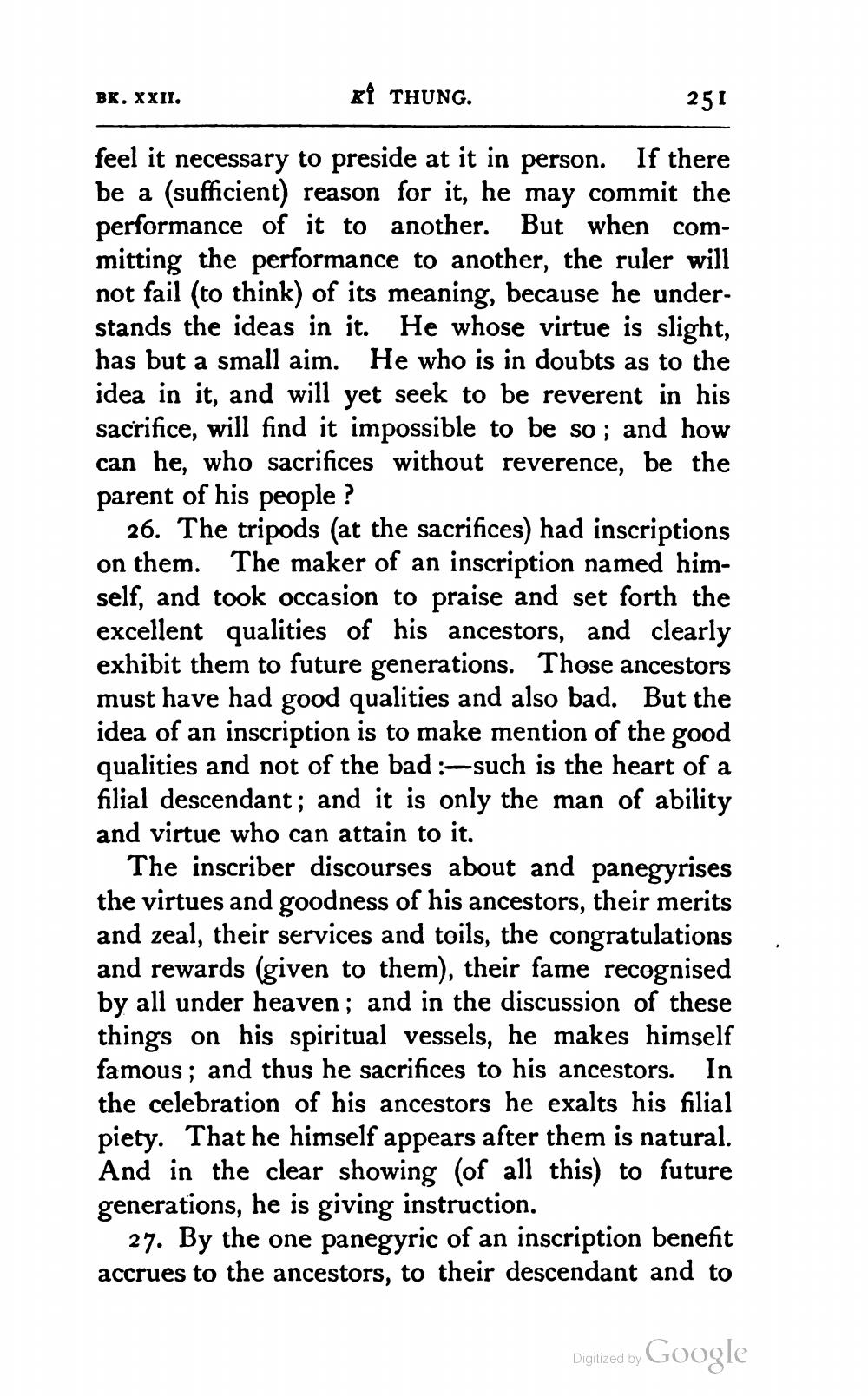________________
KỶ THUNG.
251
feel it necessary to preside at it in person. If there be a (sufficient) reason for it, he may commit the performance of it to another. But when committing the performance to another, the ruler will not fail (to think) of its meaning, because he understands the ideas in it. He whose virtue is slight, has but a small aim. He who is in doubts as to the idea in it, and will yet seek to be reverent in his sacrifice, will find it impossible to be so; and how can he, who sacrifices without reverence, be the parent of his people?
26. The tripods (at the sacrifices) had inscriptions on them. The maker of an inscription named himself, and took occasion to praise and set forth the excellent qualities of his ancestors, and clearly exhibit them to future generations. Those ancestors must have had good qualities and also bad. But the idea of an inscription is to make mention of the good qualities and not of the bad :-such is the heart of a filial descendant; and it is only the man of ability and virtue who can attain to it.
BK. XXII.
The inscriber discourses about and panegyrises the virtues and goodness of his ancestors, their merits and zeal, their services and toils, the congratulations and rewards (given to them), their fame recognised by all under heaven; and in the discussion of these things on his spiritual vessels, he makes himself famous; and thus he sacrifices to his ancestors. In the celebration of his ancestors he exalts his filial piety. That he himself appears after them is natural. And in the clear showing (of all this) to future generations, he is giving instruction.
27. By the one panegyric of an inscription benefit accrues to the ancestors, to their descendant and to
Digitized by
Google




